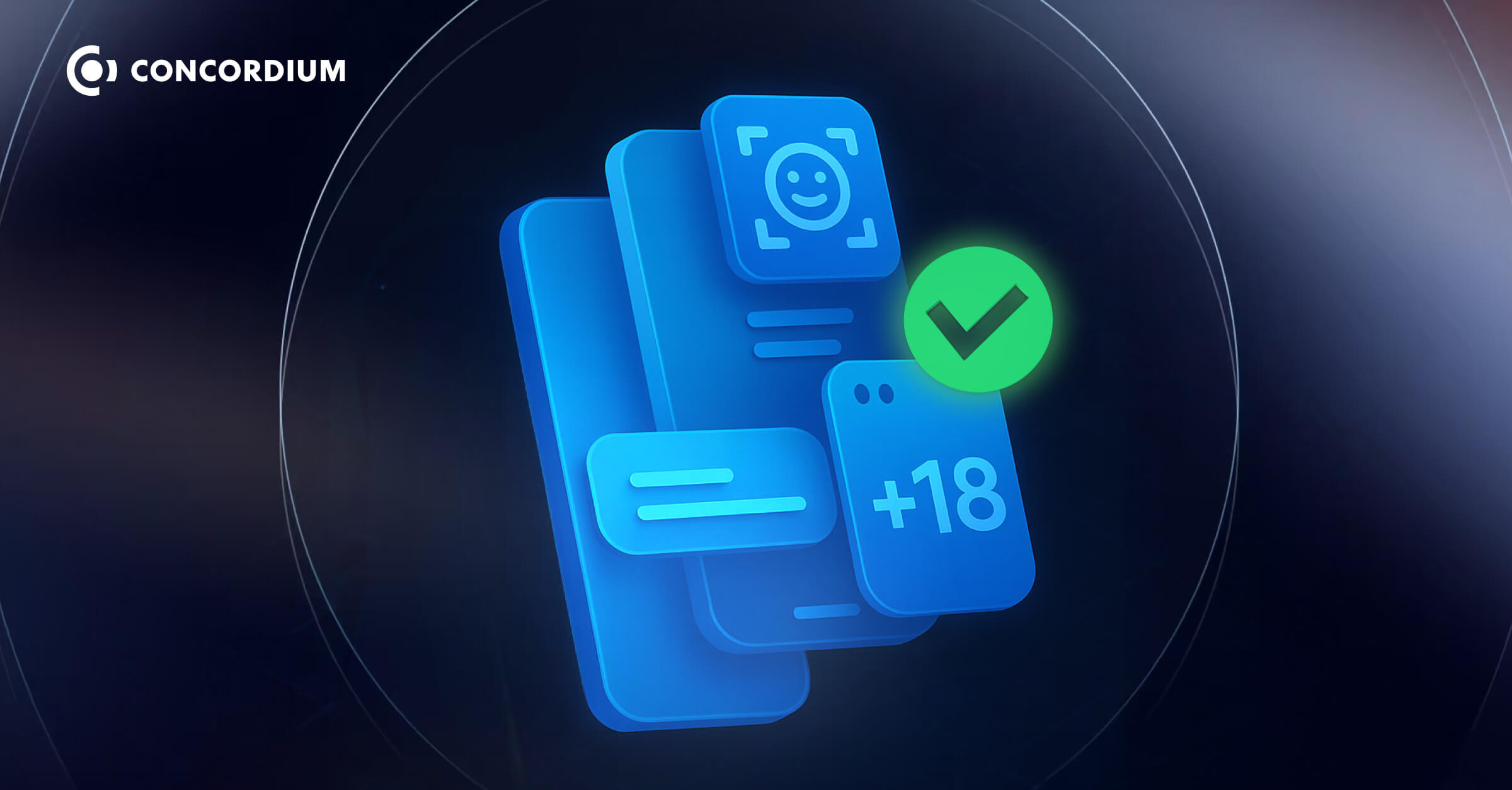Regulations are tightening – and traditional age checks can’t keep up. Concordium’s Zero-Knowledge Proof ID verification solution ensures age compliance without compromising user privacy.
The latest newsbreak – several adult websites went dark in France in protest of new government regulations requiring robust age verification. As reported by Le Monde, the move followed the French government’s enforcement of the SREN law, which demands that online platforms block minors from accessing adult content. The blackout underscores a growing global tension between age-gated service providers and regulators demanding better age checks than the existing methods, which are highly flawed, invasive and unpopular.
From crypto to adult content platforms and age-restricted consumer products, the age verification challenge is becoming a pressing–and rather sensitive–problem of the digital world. But guess what – the solution already exists on the Concordium blockchain. It offers a privacy-first, regulation-ready ID solution that uses zero-knowledge proof technology to verify age without exposing personal data or compromising user privacy.
Regulatory Pressure Is Growing
While age verification has always played an important role in managing access to rights and responsibilities, today it’s a frontline issue in privacy, safety and compliance in the digital economy. And France is not the first country to tighten the rules. Governments worldwide are imposing stricter controls on platforms in various sectors, including social media, online gaming, adult content and Web3. In the European Union, under GDPR and MiCA, platforms must verify user age, particularly for financial and consent-based services. Moreover, the upcoming AMLR will ban anonymous crypto accounts by 2027.
In the US, KYC and AML rules enforce age checks for exchanges. States like Louisiana have already introduced laws requiring age verification for adult websites. By the end of this year, users under 16 will be banned from creating social media accounts in Australia.
The SREN law, passed in May 2024, mandates strict age verification standards, and its enforcement triggered the recent protest for one simple reason – adult content providers lack the tool to preserve user privacy while complying with the law.
The Flaws We Can’t Ignore
Let’s face it – the current verification methods used just aren’t cutting it. Uploading your passport or ID into the abyss not only exposes more personal information than necessary, it also increases the attack surface for hackers, enabling surveillance, and making users sitting ducks for identity theft. What’s more, measures to protect user privacy are weakly enforced, and lack of transparency further exposes platforms to legal liability and reputational damage.
Despite the increasing regulatory pressure, today’s age verification applications often fail in three key ways:
- No Trustless Verification: Most systems rely on centralized databases that can be hacked or manipulated. In 2023 alone, around 16K security incidents were reported worldwide, with over 5000 confirmed data breaches globally. 82% of breaches that year involved cloud-stored data, underscoring how centralized databases—often used for ID verification—are major breach targets.
- Privacy Invasion: Users are often asked to upload sensitive data such as government IDs or selfies. As per a study by the Pew Research Center, 73% of the American respondents felt they have little to no control over how companies collect their information, and 79% felt the same about governmental data collection.
- Easy Circumvention: Many users, especially minors, bypass simple age gates. A 2024 Ofcom study revealed that 22% of UK children aged 8-17 lied about their age to access restricted content.
Given the current situation, the demand for better solutions is accelerating, with the global age-verification software market expected to grow from $186.8M in 2023 to $444.4M by 2030 reflecting a compound annual growth rate of approximately 13.2%.
The Concordium Way: Age Verified, Identity Protected
What if you can prove that you meet the age requirements without exposing your actual age or personal information? Well you can, and it’s only possible on Concordium. By integrating Zero-Knowledge Proofs (ZKPs), Concordium’s ID solution enables users to prove they meet an age threshold (e.g., over 18) without revealing any personal information. Embedded in the protocol’s ID layer, the Concordium blockchain provides a scalable, cross-platform solution that protects privacy while meeting regulatory requirements.
Importantly, identities are never stored on-chain and only revealed under stringent legal obligations enforced by Swiss authorities. Once verified, users can instantly prove eligibility across platforms and applications—eliminating redundant KYC, speeding onboarding, and reducing identity fraud risk.
As France’s standoff with adult platforms shows, age verification is becoming a flashpoint for digital regulation. Businesses need solutions that meet legal requirements without sacrificing user privacy. As part of its broader PayFi strategy, Concordium delivers exactly that—a trustless, decentralized system that works across industries like Web3, gaming, social media, and e-commerce. By enforcing age limits without collecting personal data, it enables compliant, seamless access in a digital world demanding both security and data sovereignty.
Learn more about Concordium Identity here.
Follow us on: X and Discord for more updates as we continue to enhance Concordium’s blockchain capabilities.


